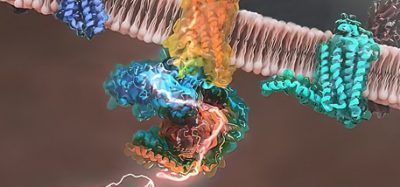The genetic mutation causing the development of psoriatic arthritis
Posted: 27 March 2024 | Drug Target Review | No comments yet
Mutation in two copies of the IKBKB gene leads to abnormal function of regulatory T cells, causing psoriatic arthritis.

Researchers from The Australian National University (ANU) have made a world-first discovery about what causes the progression of psoriasis from a skin-only disease to a skin and joint disease, known as psoriatic arthritis. By finding a gene mutation responsible for this, diagnosis and treatments for patients with either of these conditions could be advanced.
Psoriasis is a chronic inflammatory skin disease that causes patients to develop red, scaly and itchy patches on their body. Dr Chelisa Cardinez, researcher at the ANU John Curtin School of Medical Research (JCSMR), commented that if two copies of the IKBKB gene are mutated and present, patients with psoriasis can develop psoriatic arthritis, leaving them with joint pain, stiffness and swelling.
“Using a mouse model, we identified that this mutation led to an abnormal function in a group of immune cells known as regulatory T cells,” Dr Cardinez said. “These cells are normally considered gatekeepers of the immune system. However, we found that this mutation alters the function of these cells, causing them to contribute to inflammation and promote the onset of disease.”
Both psoriasis and psoriatic arthritis are types of autoimmune disease. Three out of every 10 Australians with psoriasis develop psoriatic arthritis, according to Arthritis Australia. Currently, there is no cure for psoriasis, although there are treatments that can help manage the condition. In October 2023, the Pharmaceutical Benefits Scheme (PBS) listed a new, subsidised drug for Australians living with severe psoriasis.
Dr Cardinez said: “Studies have shown that delays in psoriatic arthritis diagnosis is linked to worse clinical outcomes for patients. Therefore, earlier detection and treatment of these immune diseases is key to improving health outcomes.”
Dr Cardinez concluded: “By developing a better understanding of the IKBKB gene and the role it plays in promoting the onset of these diseases, it could bring us a step closer to one day finding a cure, which would offer new hope for hundreds of thousands of Australians.”
This study is published in Nature Communications.
Related topics
Animal Models, Drug Targets, Genetic Analysis, Therapeutics
Related conditions
Psoriasis, Psoriatic arthritis
Related organisations
The Australian National University (ANU)
Related people
Dr Chelisa Cardinez (ANU)







